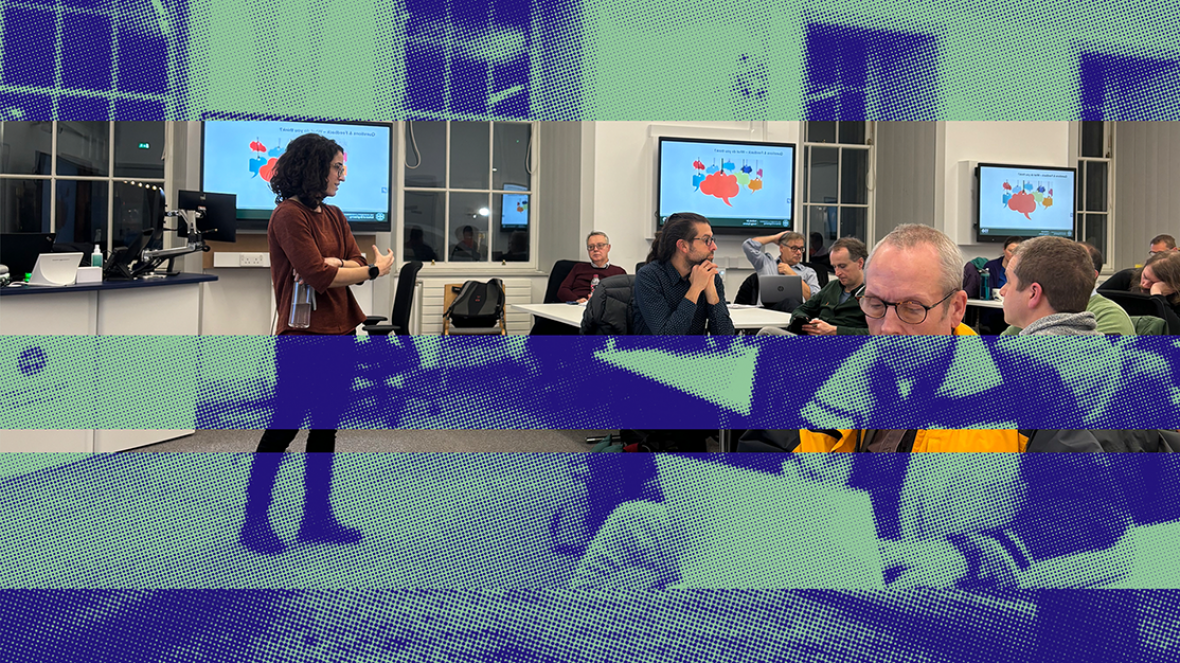
On Wednesday, 29th of November, the Energy@Ed network led by Prof. Markus Mueller (Chair of the Electrical Generation Systems) hosted a workshop on the University's offshore wind strategy. The workshop, led by Anna Garcia-Teruel (Research Associate in Offshore Wind), presented results to show how the expertise at Edinburgh aligns with priorities identified by the offshore wind sector. Members of the Energy@Ed network and academics working on topics related to offshore wind across the University then joined roundtable discussions to develop ideas for potential pilot projects based on the sector's priorities identified in the study.
The University has wide-ranging expertise in offshore wind, including resource modelling, turbine technology, grid integration, environmental impact management and energy policy. The study identified the upcoming sector challenge areas and considered their different dimensions and implications, i.e. governance, social, environmental, economic, technological, and skills, to identify forthcoming challenges across disciplines. Through this structured approach, it was possible to outline how the University's capability areas could best contribute to progress in the field.
The challenge areas identified as being the highest priority across the sector included:
- Floating offshore wind.
- Market design and grid integration.
- Spatial planning.
- Requirements of skills development closely follow logistics and operations.
The investigation also identified that these align with areas of high capability and expertise at the University.
Edward McCarthy, Senior Lecturer in Composite Design & Testing (FASTBLADE & Institute for Materials and Processes), said of the development exercise: "It was a very granular study that correctly identified the needs that exist particularly in offshore wind. It focused our collective energy on identifying opportunities to address those needs. I think the report goes a long way towards identifying potential solutions or projects."
During the roundtable discussions, participants formed three groups to brainstorm and pitch pilot projects on priority topics of floating offshore wind, market design and grid integration, and skills development. A range of exciting ideas were brought forward with an overall positive attitude about the University of Edinburgh's role in supporting offshore wind development. Academics welcomed "the opportunity to sit down and focus on generating ideas with researchers and academics from across the university" (David Ingram, Professor of CFD) and "see a bright future" for the development of collaborative projects "in line with offshore wind" sector needs (Desen Kirli, Research Fellow in Data and Digitalisation for Net Zero).
Like many who attended, Adolfo Mejia-Montero (Lecturer in Energy, Society, and Sustainability) appreciated the interdisciplinary attendance of the workshop and the possibility to (re)connect with academics in this field: "[The workshop] represented a great opportunity to meet old and new faces from different schools interested in different aspects of offshore wind. Although colleagues from engineering were a majority, the School of Social and Political Sciences was well represented by everyone from the Science Technology and Innovation energy cluster being present. This illustrates the University's existing interest and capabilities to develop cross-school and interdisciplinary collaboration on relevant topics like offshore wind."


